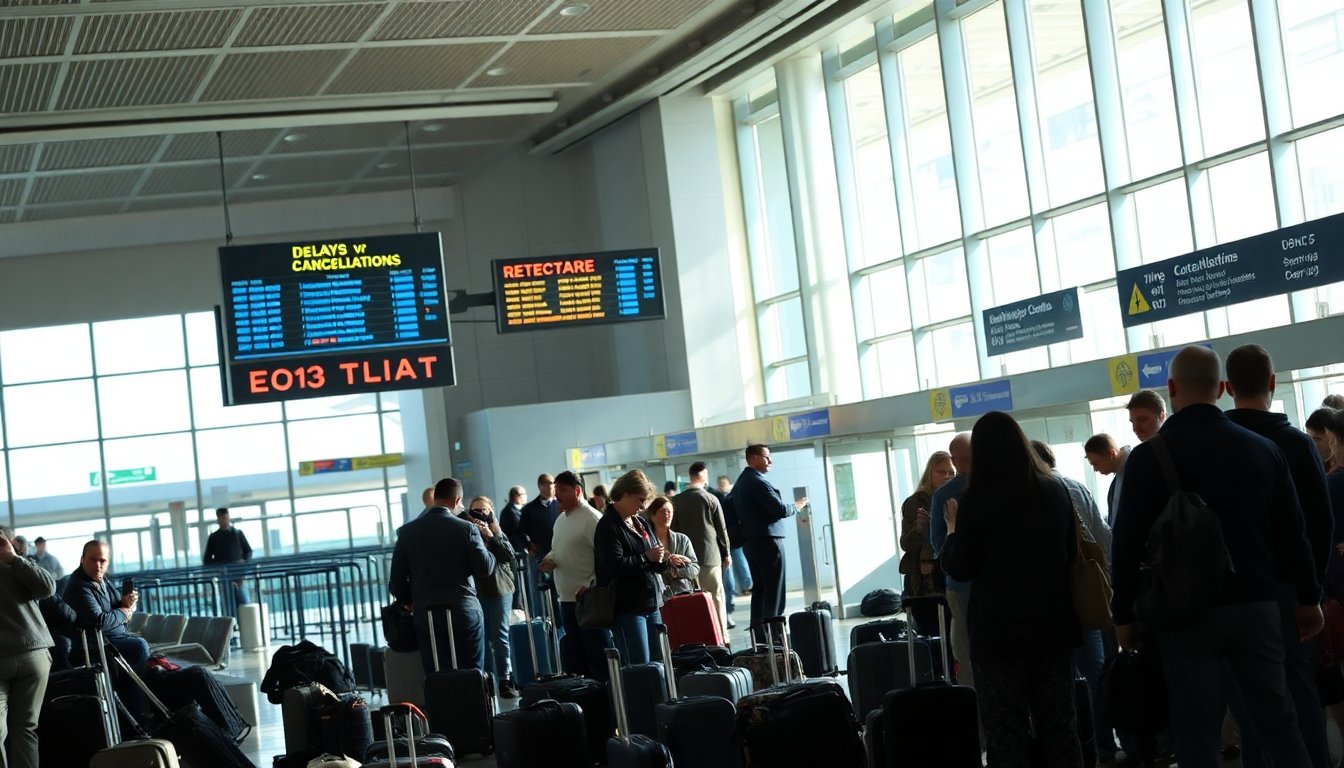Table of Contents
The recent government shutdown in the United States has caused significant disruptions in air travel across the nation. This shutdown has become the longest in history, leading to nearly 1,200 flight cancellations and substantial delays for the fifth consecutive day.
Travelers are facing long wait times and uncertainty as they navigate the chaos at airports.
Major airports are experiencing particularly severe conditions during this shutdown. For example, LaGuardia Airport in New York has reported average delays reaching approximately one hour and 40 minutes, according to FlightAware, a service that tracks flight disruptions globally.
The Federal Aviation Administration (FAA) has been forced to implement cuts in flight schedules to relieve pressure on the air traffic control system.
Effects of the shutdown on airline operations
The FAA’s recent directive mandated airlines to reduce their daily flights by 4% at 40 key airports, a figure expected to rise to 10% in the coming days.
These reductions are a direct response to staffing shortages in air traffic control, worsened by the ongoing shutdown. This week alone, over 2,400 flights were cancelled, accompanied by an astonishing 9,500 delays nationwide.
Airline industry impact
The impact of these cancellations has spread throughout the airline industry, leading to a decline in airline stocks as passenger confidence diminishes.
Major carriers such as Delta Air Lines, United Airlines, and American Airlines have all experienced drops in their stock values. As of midday in New York, Delta’s shares had decreased by approximately 1.26%, while American Airlines faced a more significant drop of over 1.8%.
Budget airlines are also feeling the effects. JetBlue, based in New York, has seen a decline of over 2%, while Southwest Airlines and Alaska Airlines have reported similar losses. This downturn reflects a broader challenge within the aviation sector as cancellations continue to rise.
Travelers’ options and advice
As Thanksgiving approaches, the timing of this disruption is particularly critical. Transportation Secretary Sean Duffy has warned of the potential for “mass chaos” at airports if the shutdown continues. Travelers are advised to stay informed by checking their airline’s app or the FAA website for updates on delays and cancellations.
Alternative travel arrangements
For those already at the airport or facing significant delays, it is crucial to act promptly. Airlines typically offer to rebook passengers on later flights at no additional cost. If travel plans become untenable, passengers are entitled to refunds, even for non-refundable tickets, covering any additional fees for baggage or upgrades that were unused due to cancellations.
Considering alternative modes of transport, such as trains or buses, may also be worthwhile. The current situation is unique, affecting entire airports rather than just individual airlines. According to travel experts, the longer the shutdown persists, the more challenging it becomes to find operational flights.
Looking ahead
While Congress is working toward resolving the shutdown, its immediate effects on air travel are likely to persist. Air traffic controllers and security personnel continue to work without pay, resulting in increased absenteeism as employees seek alternative income sources. Discussions regarding potential airspace closures have emerged, although such measures have not yet been implemented, highlighting the fragility of the air travel system.
The ongoing disruption underscores the interconnected nature of the US air traffic control system. Delays at one airport can quickly ripple through the network, impacting flights nationwide. As the situation unfolds, industry analysts warn that confidence in the safety and reliability of the air travel system is at risk, which could have long-term implications for the industry.





